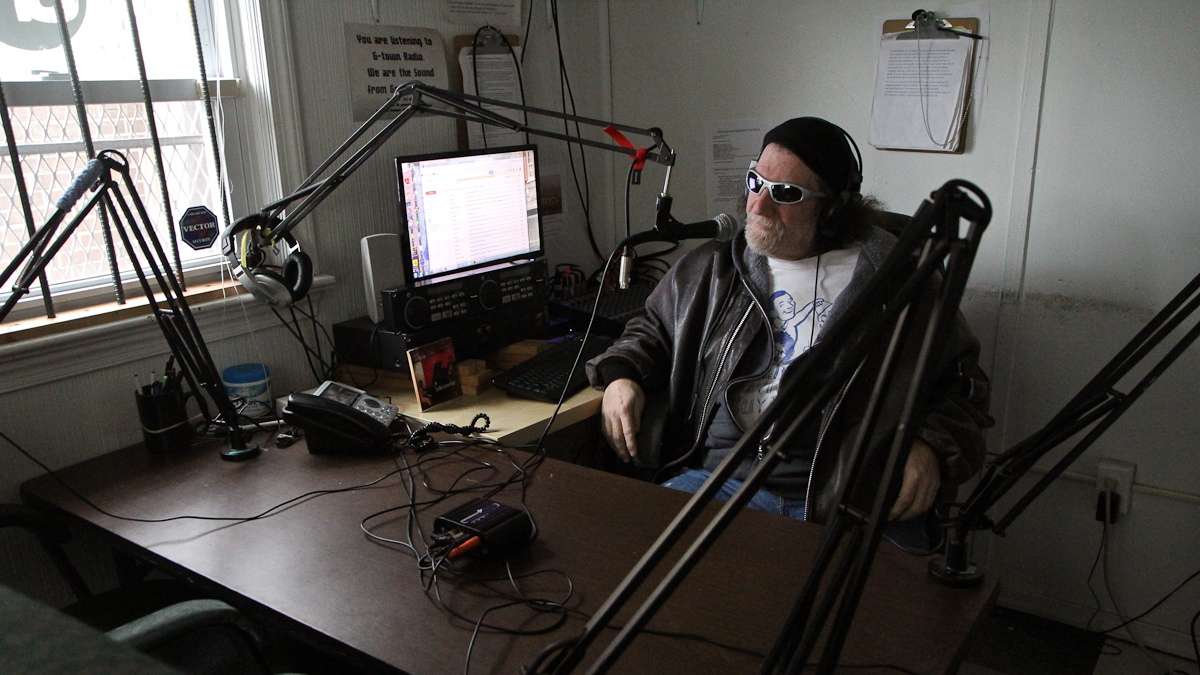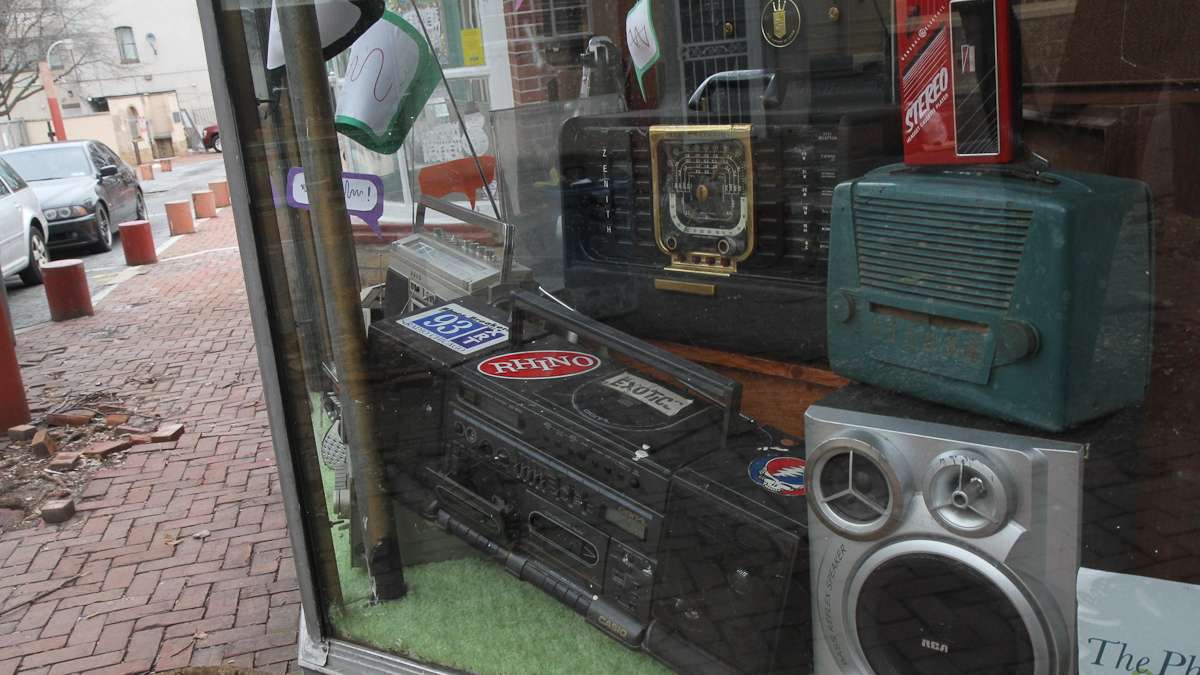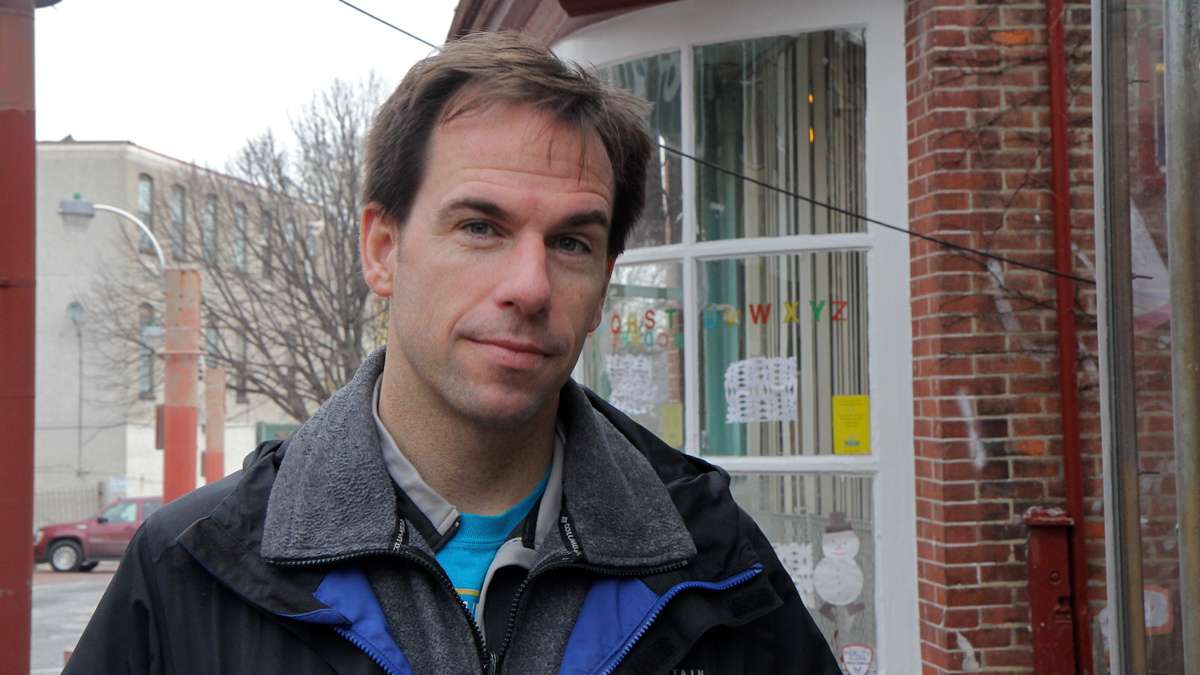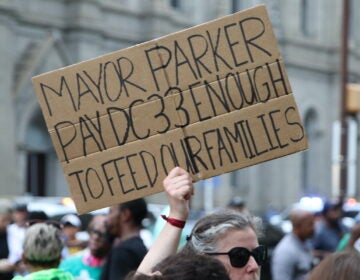Modest wattage, high impact for new Philly neighborhood FM stations
ListenA small, empty room on Ranstead Street has Gretjen Clausing gushing with excitement.
In the coming year, the second-floor space will be transformed into a radio studio that’ll broadcast community-driven programming on 106.6 FM, a brand new frequency on Philadelphia’s dial.
It’ll be one of three “low-power”, neighborhood-based stations to launch thanks to more than a decade of activism and the Federal Communications Commission.
“It’s amazing,” said Clausing, executive director of PhillyCam, a Center City nonprofit that produces public access programming.
“There’s a tremendous amount of room for additional programming. There isn’t that kind of dedicated place that is coming directly from people that live here in the city.”
More than a year ago, the FCC invited groups from across the country to apply for what are known as “construction permits.”
If awarded, organizations can set up antennas and – after getting a license – operate their very own radio stations.
The call for applications was made possible by the Local Radio Community Act, a law President Obama quietly signed in 2011 after years of pushing by community radio advocates including the city’s Prometheus Radio Project.
The measure expanded the available airspace and with it the number of LPFM licenses the FCC could award.
Under legislation passed in 2000, low-power stations were defined — and continue to be — as noncommercial, independent stations powered by less than 100 watts, enough to broadcast throughout a roughly 3.5-mile area.
Stations, however, also had to be at least three “clicks” away from full-power stations to avoid overlapping and interference. Now, following new regulatory protections, the gap is down to two.
While seemingly insignificant, that one-click reduction meant everything to advocates of the legislation as it opened up for the first time the possibility of having more LPFM stations in urban areas with jam-packed spectrums.
In Philadelphia, that meant that WPEB – short for West Philadelphia Educational Broadcasters – would no longer be the city’s only community radio station.
For people such as Germantown resident Jim Bear, it specifically meant that Gtown Radio will, for the first time, be heard beyond the Internet.
Bear started streaming programs online in 2006 because, at the time, it was his only option. He said the format does have its benefits, including the potential for an incredibly wide audience.
“That being said, you kind of have to temper that with the reality that as excited and as in love with Internet radio, as I am, when you’re trying to serve a community in 2015 still, the best way you’re going to do it is on the radio,” said Bear.
He hopes the station can help build a stronger sense of community and paint a more accurate, less violent picture of Germantown for those who don’t live there.
“There are situations that need to be worked on, but there’s a lot of hardworking, smart, vibrant people who want to make this a better place,” said Bear. “This really is an opportunity for people to plug into it and make something good.”
The Germantown Life Enrichment Center, Germantown United CDC and South Philadelphia Community Radio will also share time on 92.9 FM when it’s up in running, perhaps by the end of 2015.
Two groups in North Philadelphia – Uptown Entertainment and Development Corporation and the Greater Philadelphia Asian Cultural Center – will broadcast on 98.5 FM.
A total of 16 groups applied for construction permits in Philadelphia. The FCC awarded 2,000 across the country.
Prometheus policy director Sanjay Jolly said the new stations are “potentially transformative.”
“I can’t define what that transformation looks like, but when you have local control of media infrastructure, you control cultural expression and production,” Jolly said. “That affects how people see their neighborhoods.”
WHYY is your source for fact-based, in-depth journalism and information. As a nonprofit organization, we rely on financial support from readers like you. Please give today.









